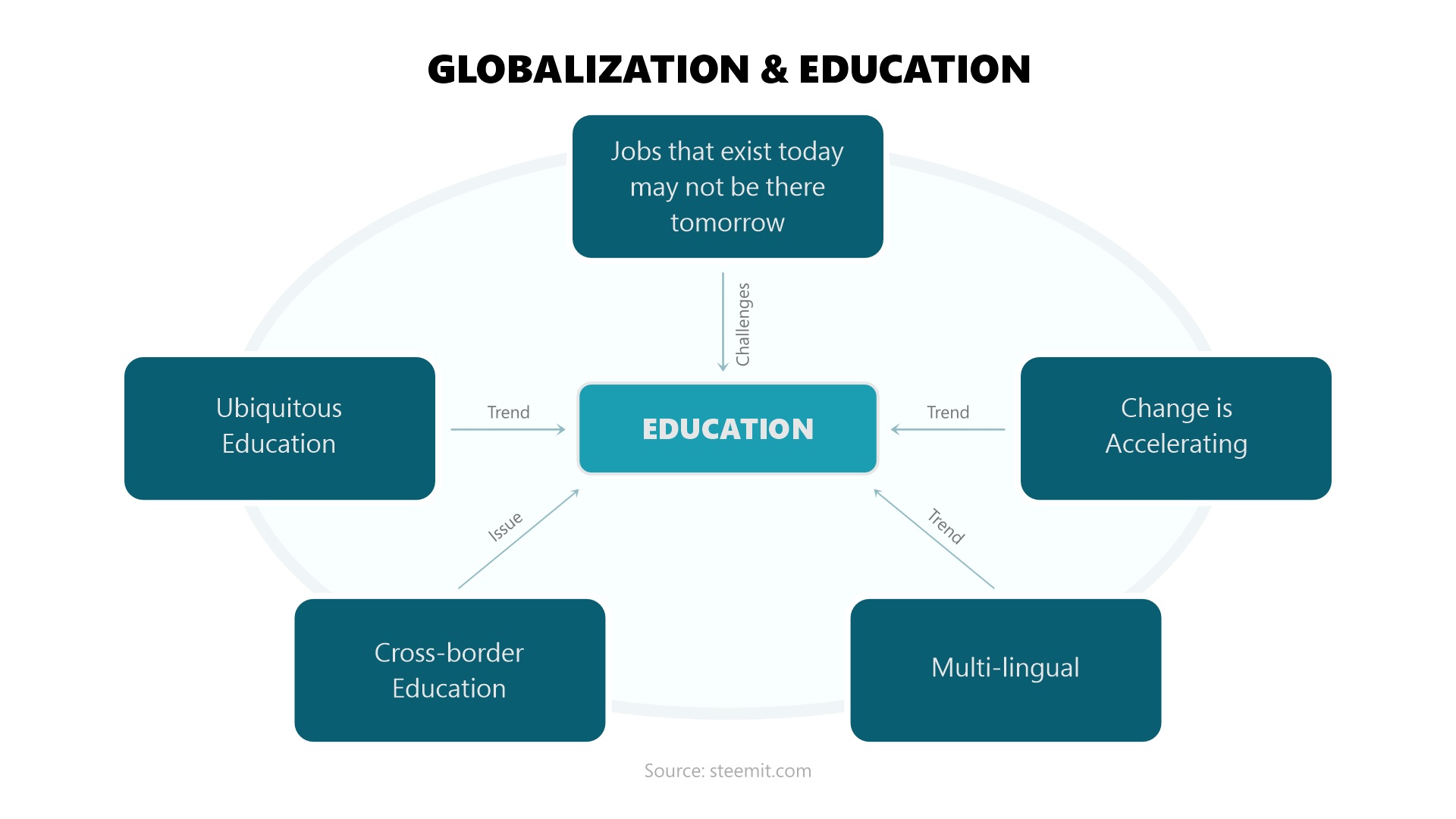Education has been an incredibly profitable sector when it comes to visualizing astounding gains via technological advancements. Not just quantitatively, the industry has witnessed qualitative enhancements in the comprehension levels of the learners as well as an upward trend in the proficiency of the facilitators at educational institutions.

These numbers are sure to grow further through 2031; as the recent estimates go. The phenomenon of internationalization over the decades has become a prominent factor in the growth of educational technology expanse. The smooth integration of economies, markets, and societies has a profound impact on academia worldwide. This indicates the fact that the entire gamut of global higher education has been steered and influenced by the effect of globalization. Let us take a closer look at the critical aspects of globalization and the ways it triggers staggering growth prospects in higher educational technologies beyond 2024.
How Does Economic Globalization Impact the Internationalization of Education?

Higher education is principal to the social, economic, and cultural health of a nation. It will contribute not only through the intellectual development of learners and preparing them for potential work opportunities. They will become a big addition to the world’s store of knowledge and comprehension. Addressing the challenges of innovative job roles being offered ahead, learners in higher education need to ramp up their skills with the latest in educational technology.
Related Myths:
- In terms of foreign students being on campus, can bring in more international influence in the institution towards curriculum and culture
- International reputation is considered part of quality assurance
- The higher the number of international agreements or network memberships that an institute has, the greater its prestige and attraction
- The more International Accreditation stars and ranks that an institute has, the higher is its internationalized aspect
- Brand positioning and global branding were not an outcome of internationalization but a marketing scheme
Looking at all the above myths, one thing is clear busting these myths shall require more participation of global education institutions and facilitators-learners fraternity to participate in the educational technology ramp-up procedures. Being party to these thriving educational technology-powered curriculum; it is expected to leverage better returns on the way global higher education is viewed today.
Evident Opportunities:

When talking of globalization of industries, it is viewed as a big pro for the astounding returns, they reap. In regards to the higher education sector, qualitative additions have been made due to this economic globalization as well; that can be listed as follows:
- Access to diverse knowledge
Globalization fosters access to a wide range of knowledge sources, perspectives, and experiences from diverse geographical locations of the world. Participating in cross-cultural dialogues, collaborations, and exchanges that enrich your understanding of various topics and issues.
- Mobility and flexibility
Choose to study abroad, either for a short-term program or a full degree, and experience different academic systems, cultures, and environments.
- Immersive learning with innovation and excellence
Leveraging audio-video realities into educational technology is making the whole idea of globalization of education a hit. This provides greater freedom to the facilitators to offer lectures as the student can tune in to live-streaming lectures at a given time.
- Blended learning with diversity and inclusion
You can opt for online or blended learning modes, which allow you to study at your own pace, place, and time. benefit from the diversity and inclusion of your peers, mentors, and role models as well as the curriculum, pedagogy, and assessment models.
- Adaptability and resilience
This facet exposes you to various uncertainties, risks, and opportunities in higher education. you may face cultural shocks, language barriers, academic differences, or other issues while studying abroad or online.
- Encourages collaboration
Educational technology can foster collaboration as the technology enhances communication and fosters greater connection; making it easier for students to interact with their peers across borders as well.
- Promotes Distance learning
The greatest benefit of the internet and globalization in education has been access to quality education through distance learning programs. Online classes became a reality with nuanced educational technology doing its bit in elevating the understanding levels of learners of all ages.
Challenges:
Typical to any technological ramp-up; you are sure to witness some loopholes that may drag the overall higher scaling graph southwards. Globalization has left some traces of adversely affecting education in a big way as well.
- Increased competition in the higher education sector has been the foremost result of globalization. This includes competing with international universities and the top talent worldwide.
- Cultural and pedagogical differences do not always support the learning graph of every student in a batch.
- Lack of qualified faculty poses another threat to the quality of higher education being served.
- Globalization has increased the demand for higher education; increasing the inflation in the global sector as well. This makes it more expensive for students and their families. This is not all, it also adversely impacts the learners, researchers, and educators to study and work abroad due to rising costs and challenging curricula.
Having said that; looking into the future; is guided by stronger steps being taken in the technological advancement arena. Irrespective of the demand-supply gap for qualified facilitators and enough technology to facilitate quality learning. The world is going to experience a much larger demand for edtech innovations and the world will create enough room for prompt tech successions to be made with ease.

